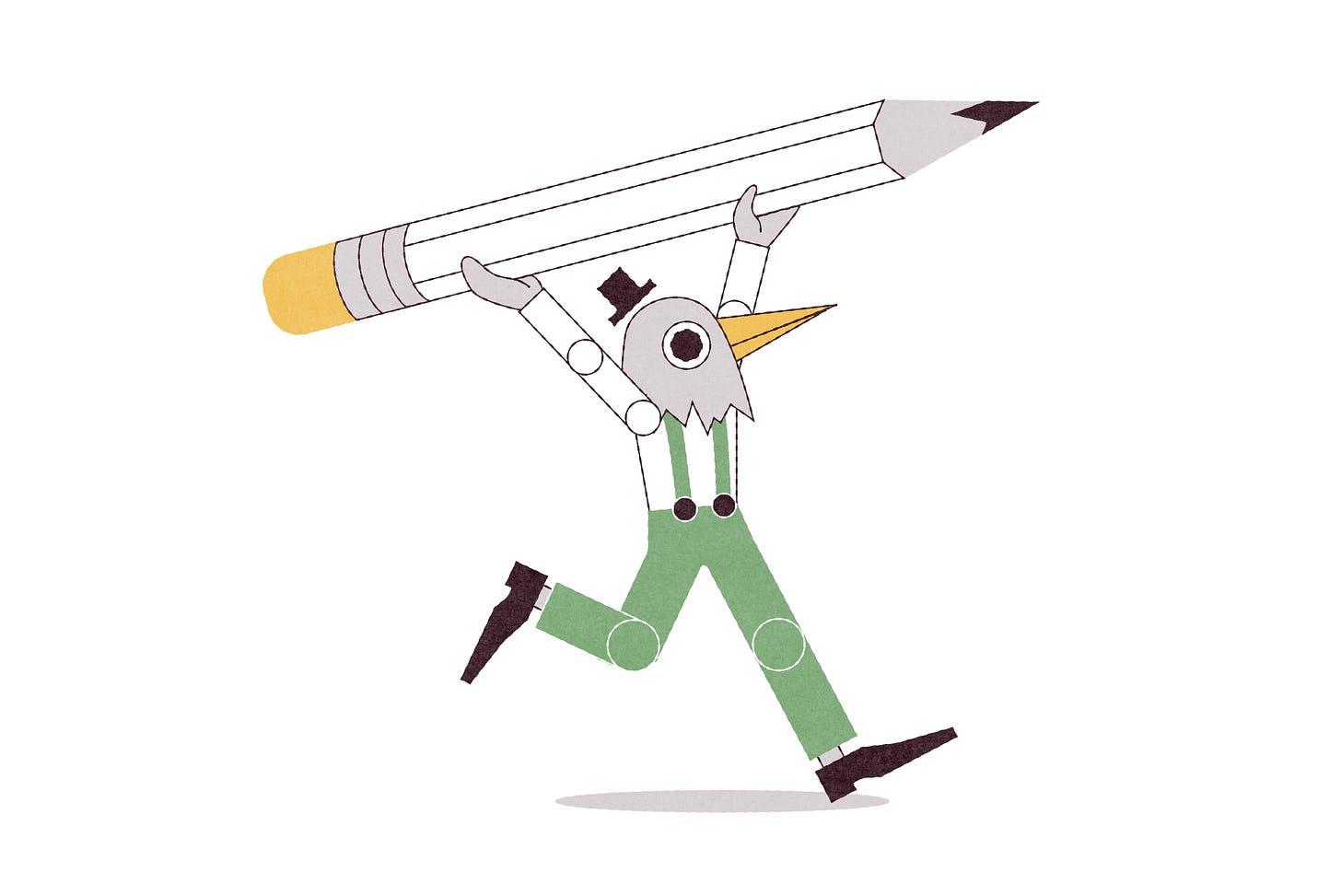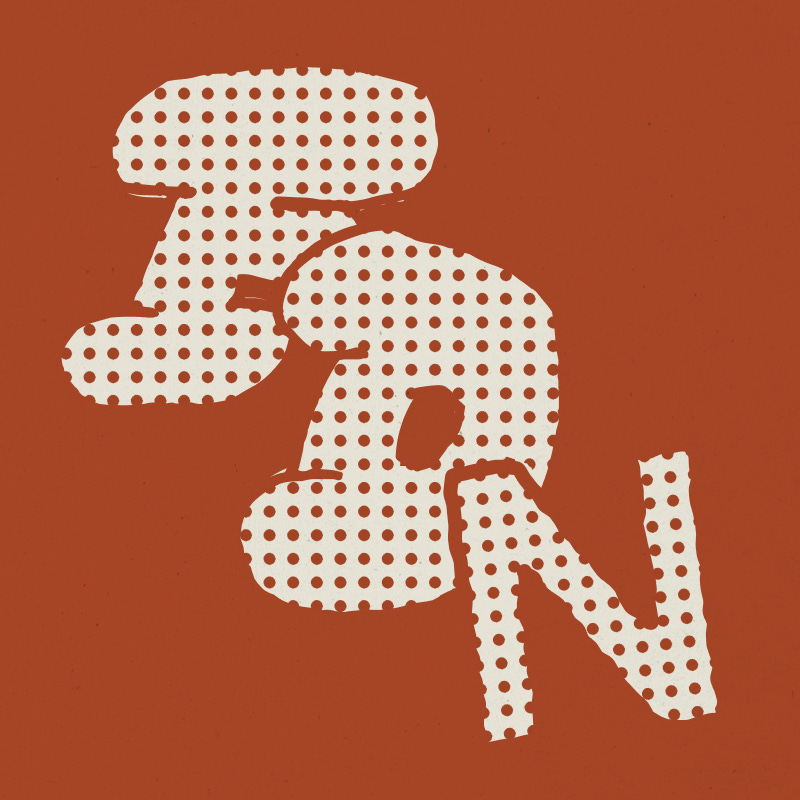Writing the First Draft of Your Novel: Expectations VS Reality
Spoiler alert: there's a BIG difference!
Hey Forever Workshoppers!
Who’s writing the first draft of a novel right now?
Who’s finding it… tough?
Well, you’re certainly not alone. In fact, you’re in great company. Which is why we’ve invited the wonderful Kailey Brennan DelloRusso to help us make the whole novel-wrangling situation feel a bit more manageable.
(P.S. Also check out the extremely cool new novel-related THING Kailey and Chill Subs have cooked up for November — all the info at the end of this post!)
Enter: The Novel
I both love and hate the first draft of a novel. On the one hand, there is so much possibility, and following a new idea can leave me buzzing with excitement. But on the other hand, starting a new draft feels like what I assume being a newborn baby deer feels like when it tries to walk for the first time on those little knobbly legs.
Shaky, unsteady, and maybe even a little scary.
I think we can’t help but have expectations for what any writing project might look like. We want to be able to render our amazing new story idea on the page exactly how we see it in our head, for example. Or, in the other direction, we might assume we don’t have the know-how or skills to even write a novel at all.
But what’s that saying about assumptions, again? Yeah…
I’m here to tell you that you DO have everything you need to start your novel draft and while your expectations might feel very real to you, sometimes we all need a little reality check:
First Draft Expectations VS Reality
EXPECTATION → You need to know everything about your story idea before you even start drafting
You figure that in order to write a whole damn book, you have to know what will happen in the beginning, middle, and end. How else could you possibly write something like 80,000 words?!
So you spend hours outlining your idea, plotting, and story mapping… but the minute you hit a bump in the road or a plot point you have no idea about, you figure you’re not cut out for this or your story idea isn’t a full novel idea after all.
REALITY → Curiosity and playfulness will get you further than any outline
This will forever be my favorite advice to give to novelists. Because when I first learned it, it completely changed my writing life. After months of stress and outlines (guess what, I hate outlining), I finally let go of the need to control my story.
Approaching a draft with the playfulness of a child, as a sheer act of discovery, allows us to trust our inner voice and let our imagination naturally emerge. It also takes off loads of pressure!
Save your rigidity for the years of revisions this novel will entail, and allow your happy little writer self to emerge. It’s a wonderful thing when you realize you still have the ability to surprise yourself (Yeah, that’s an American Beauty quote).
EXPECTATION → My first draft will follow a clear, linear story from start to finish.
Much like the expectation that you should know everything about your book before you get started, you also expect your first draft to have a clear and tightly plotted narrative right from the get-go. I mean, duh, have you seen all those outlines?!
REALITY → First drafts are messy as all hell (and that is the point)
If it helps, consider this your “zero draft.” This baby is just for YOU. No one else is going to see it as you make your way page by page, discovering your characters, their desires and motivations, antagonistic forces and what will happen along the way.
And because it is your private discovery draft, you don’t even have to write in order! Follow your enthusiasm. Write whatever lights you up inside. In time, you will get this book into shape as far as structure and plot. But for now, in Draft Number 1, embrace the mess. In fact, immerse yourself fully in it! The messier, THE BETTER. Yeah, I said it!
EXPECTATION → Writing a novel draft is going to take forever
The average novel is between 70,000 and 100,000 words. So yeah, there’s no way that won’t take a really, really long time to finish.
REALITY → The faster you move, the easier it is to actually finish.
The benefit of moving through the first draft quickly is that it leaves less time to second-guess and self-edit. This was pivotal to my own success, as I spent too much time stressing over what wasn’t working and what I didn’t know. As I mentioned before, there is going to be A LOT you don’t know in this draft. That is totally normal. So keep it moving!
And with that curiosity and playfulness at the center of your practice, even when you know something isn’t working or you feel completely stumped by a character’s actions or words, you can trust that the story will work itself out in another draft. Or you might even get to the end and have an epiphany! But writing through this discomfort of not knowing, with momentum, allows you to turn off the critical, logical side of your brain — keeping your storytelling intuitive.
(Bonus: Think of how amazing you feel with a first NOVEL draft under your belt that you can say you completed in a matter of months, rather than years!)
No matter how you approach it, writing a first draft is its own adventure. There’s no right or wrong way to do it, and I’m sure you’ve faced your own expectation vs reality discoveries along the way, too… So tell us all about it:
What have YOU learned from the novel writing process so far?
Has it gone differently to how you expected?
Any other tips for your fellow novelleers?
Share your first draft knowledge below!
So… Wanna Write a Novel Together?!
Okay, so who’s ready to write with curiosity, make a mess, and breeze through a first (discovery) draft of their novel? I hope it’s you! Because November’s almost here and NaNoWriMo might be cancelled, but the Chill Subs fam and I have put together an exciting month-long novel-writing challenge instead.
First Draft November is a free writing challenge where we will steadily and quickly write the first 50,000 words of our novel, together. I will guide you through writing a little over 1,000 words a day (1667 if we want to be exact) for the entire month. By the end of it, you’ll have about 50,000 words — roughly 75% of a novel — that you can shape, revise, and build on. No small feat!!
What makes this challenge unique is that each Monday, Wednesday and Friday, you’ll get one deep, story-shaping question designed to inspire new scenes and help you understand your story better. Because as much as we aim to approach this draft with curiosity, a loose structure can be helpful. These questions double as both fuel for your word count and mini-lessons on story structure, so by the end of November, you’ll not only have pages written but also a clearer sense of your novel’s foundation.
PLUS: There will be tons of opportunities for accountability so we can all stay connected and keep each other going.
I’m so excited to spend this time with you!








I related too much to the expectations, I wanna crawl under my bed lol. I told myself I was going to start writing (this was a couple of months ago), but I spent the whole time "defining" characters, plots, and acts, wrote only one chapter, and then I was revising and editing the entire thing. SO I took a step back and, again, crawled under my bed (not really).
This is why I am so excited to participate in the November challenge! And embrace this messiness, let loose, and amaze myself with what I can create.
I wrote my first novel following an outline and the story structure suffered (and it was like pulling teeth to write it). With my second novel, I had a vague idea of the beats I wanted to hit (from the 3 act structure). It turns out that being looser yields a better result. With my next attempt, I'm going to start with just an idea! Yikes! A little nervous, but I figure it's worth a try.